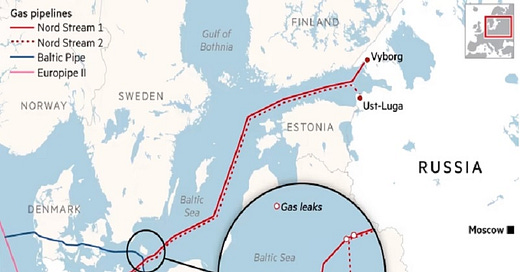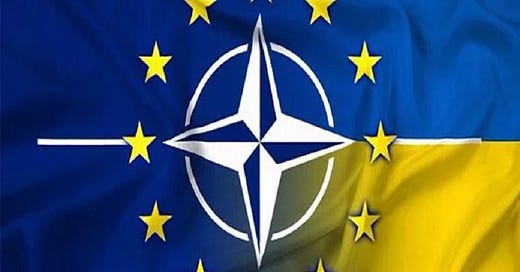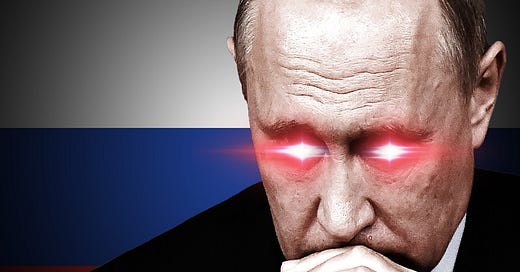
Gandhi & Tolstoy Provide The Philosophical Basis For The Russian-Indian Strategic Partnership
Russia and India’s complementary evolutions into civilization-states naturally entail a return to their traditional socio-cultural systems, ergo the renewed importance of Tolstoy and Gandhi’s similar philosophies at home. On the foreign front, these two Great Powers embrace their most globally renowned thinkers by pursuing the peaceful integration of Eurasia, which manifests itself through Russia’s Greater Eurasian Partnership and India’s principled neutrality in the New Cold War.
The opening of the “Russian-Indian Cultural and Educational Center of Leo Tolstoy and Mahatma Gandhi” in New Delhi’s Dwarka school and Moscow’s school No. 1409, which just took place in mid-May during an event attended by Russia’s Deputy Minister of Education, is a milestone in bilateral relations. While it might appear on the surface to only be about strengthening socio-cultural ties between these two’s people, there are actually other important dimensions to this development.
Gandhi and Tolstoy are known across the world for their similar views on morality, non-violence, peace, spirituality, and traditional values, which explains why they corresponded during their lifetimes. It’s beyond the scope of this piece to elaborate more on their works apart from highlighting the themes that most folks are familiar with. Raising awareness of these thinkers’ kindred perspectives not only brings their people closer together, but also provides the philosophical basis for their strategic partnership.
This is more significant than ever in the present context of the global systemic transition to multipolarity, the latest phase of which began 15 months ago with the start of Russia’s special operation and has seen the West put unprecedented pressure on India to distance itself from Moscow. This South Asian state has refused to do so, however, precisely due to the influence that Gandhi’s philosophy exerts over its grand strategy amidst this chaotic period of International Relations.
India envisages peacefully transitioning back into a civilization-state, which represents a return to the historical role that it played for millennia prior to the world system adapting the Western model of nation-states that’s only been in place for the comparatively brief period of just about two centuries. This aligns with the trend of the times since all key players are moving in that direction, including Russia, which is proudly differentiating itself from others nowadays as a distinct Eurasian civilization.
Russia and India’s complementary evolutions into civilization-states naturally entail a return to their traditional socio-cultural systems, ergo the renewed importance of Tolstoy and Gandhi’s similar philosophies at home. On the foreign front, these two Great Powers embrace their most globally renowned thinkers by pursuing the peaceful integration of Eurasia, which manifests itself through Russia’s Greater Eurasian Partnership and India’s principled neutrality in the New Cold War.
The second-mentioned is distinctly Gandhian due to its balanced approach towards international conflicts like the NATO-Russian proxy war, which places India in the best position to mediate peaceful resolutions because it doesn’t take anyone’s side. His philosophical legacy influenced policymakers to maintain their pragmatic multi-alignment policy in the face of Western pressure, which has since inspired the Global South to follow India’s lead after seeing the strategic benefits that it’s reaped.
India’s resultantly emerging role as the irreplaceable balancing force in the global systemic transition is made possible by its continued commitment to expanding strategic relations with Russia, without which they’d both be compelled by circumstances to become the US and China’s junior partners respectively. Such an outcome could set into motion the bifurcation of International Relations, which would subsequently limit every country’s sovereignty and therefore be a worldwide injustice.
Preemptively averting this scenario through the indispensable role that their contemporary strategic partnership plays in accelerating multipolar processes in Eurasia fully aligns with Gandhi and Tolstoy’s philosophies. It aims to bring the greatest amount of justice to the greatest amount of people by giving them the chance to chart their own futures in the new world order that’s being built. These opportunities wouldn’t be possible if Russia and India didn’t have complementary grand strategies.
The aforesaid, as was argued throughout this analysis, are veritably influenced by Gandhi and Tolstoy’s similar views on morality, non-violence, peace, spirituality, and traditional values. After all, it’s not for naught that Prime Minister Modi suggested in September 2019 during his participation in the Eastern Economic Forum in Vladivostok as President Putin’s guest of honor that these giants should serve as the inspiration for comprehensively expanding their ties.
Three and a half years later in early March of this year, Russian Foreign Minister Lavrov said during an exhibition in New Delhi dedicated to those two figures that their ideas contributed to their respective countries working together to build “a fairer and more democratic, polycentric world order.” This confirms that Gandhi and Tolstoy do indeed provide the philosophical basis for the Russian-Indian Strategic Partnership, which in turn proves their indelible impact on shaping International Relations.
















Kinda tough on Dostoyevsky...
And the Arabs.